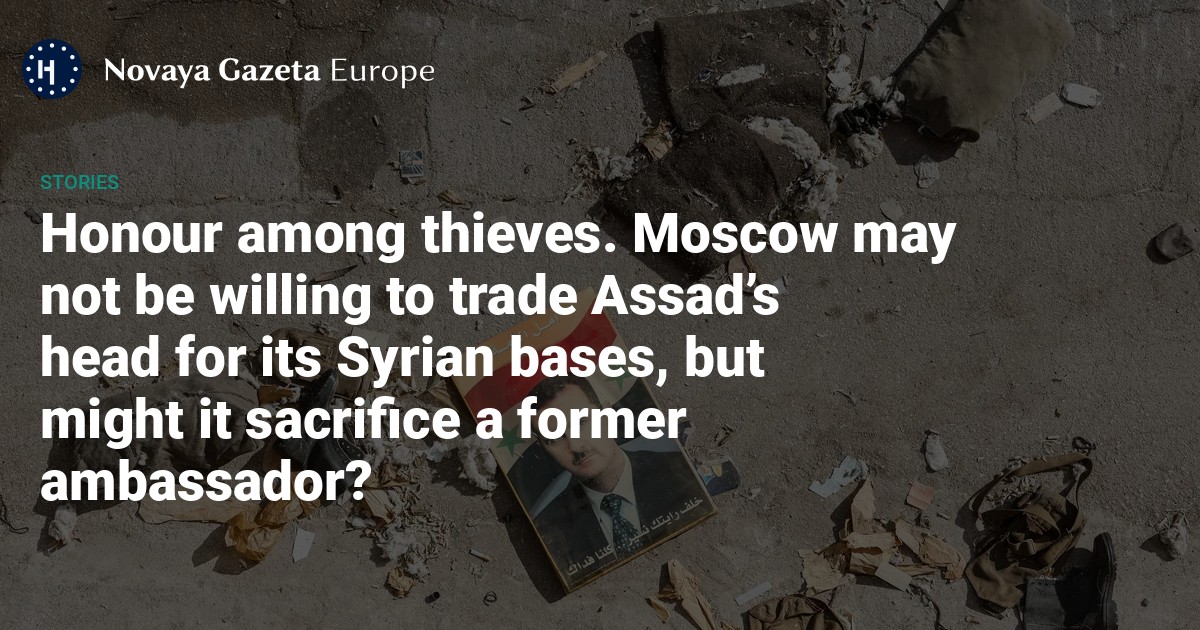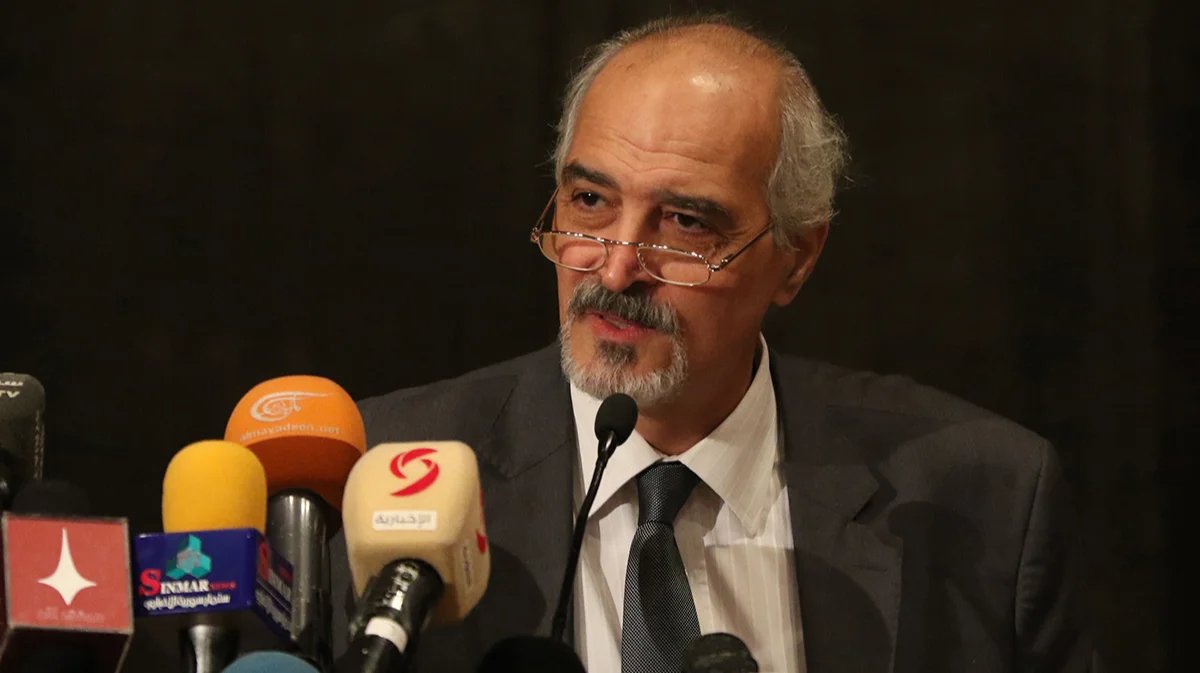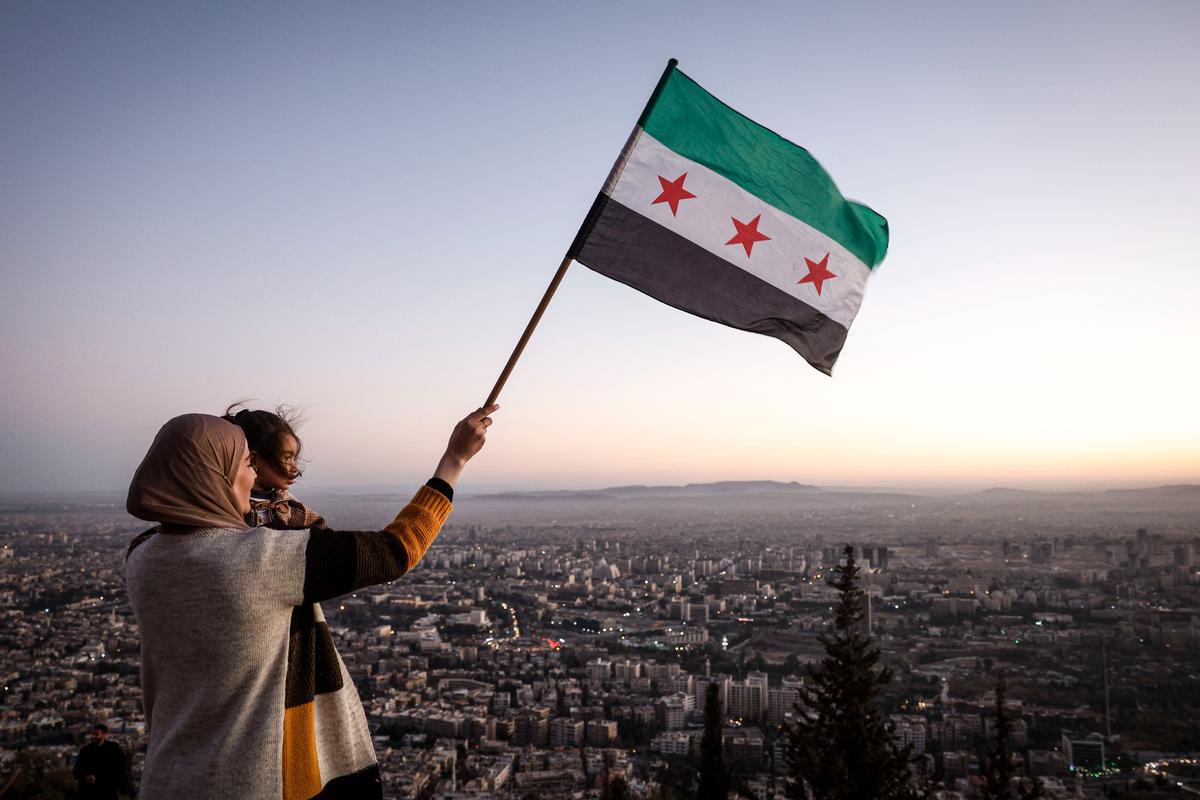



Syria remains firmly on the Kremlin’s radar. Just last week, Russian Deputy Foreign Minister Sergey Vershinin confirmed that Moscow was engaged in talks with the new Syrian leadership on a range of issues and stressed that “the interests of both sides” were being taken into account. Syrian Foreign Minister Asaad Hassan al-Shaibani has also received an invitation to visit Moscow from Russian Foreign Minister Sergey Lavrov.
Russia’s priorities are clear: its primary concern is the future of its military presence in the Middle East, especially since control of the port of Tartus passed to the UAE last month despite Moscow having signed a 49-year lease on the facility with the previous Syrian government. But what do the Syrians want in return?
In short, retribution. Following the collapse of his brutal regime, former Syrian president Bashar al-Assad fled to Russia with his family and inner circle where Vladimir Putin is believed to have personally granted them political asylum. Several former Assad-era officials and military figures were also taken in by Russia. But in March, the transitional Syrian government officially requested Assad’s extradition to face trial for the numerous atrocities he is known to have ordered, his use of chemical weapons against his own people, and multiple other crimes against humanity.

Bashar al-Jaafari, Damascus, Syria, 5 August 2018. Photo: Youssef Badawi/ EPA-EFE
It’s clear what Assad’s fate would be were he to be handed over to Damascus, so Moscow rejected the request. Yet the Syrians have upped the stakes by making his extradition a precondition for any further talks on the future of Russia’s military bases in Hmeimim and Tartus.
Moscow is unlikely to hand over the ousted dictator, however, covered as he is by Putin’s personal honour code, according to which he reciprocates the loyalty others have shown to him and provides them with personal security guarantees, no matter what their crimes.
But just how many people do those guarantees cover? This is the question currently weighing on the mind of one Bashar al-Jaafari, Syria’s erstwhile ambassador to Russia.
Bashar al-Jaafari was the regime’s chief ideologue and mouthpiece, defending its barbaric actions with sophistication and vigour.
Born in Damascus in 1956, al-Jaafari studied in France, earning a doctorate and becoming fluent in French and English. From the early 1990s, he moved up through the diplomatic ranks, and eventually became one of Syria’s most recognisable international figures.
In 2006, he was appointed Syria’s permanent representative to the UN, a post he held well into the 2020s. During the civil war, which began in 2011 and led to mass human rights abuses and a refugee crisis, al-Jaafari became the global face of the Assad regime and one of its principal apologists, making combative and accusatory speeches that blamed the West and Syria’s Arab neighbours for fuelling the conflict, while branding domestic opposition forces as terrorists. Indeed, to many, al-Jaafari was far more than a mere diplomat: he was the regime’s chief ideologue and mouthpiece, defending its barbaric actions with sophistication and vigour.
In January 2022, at a moment when Assad believed the civil war had been won and the Syrian opposition comprehensively crushed, al-Jaafari was dispatched to enjoy a quiet and undemanding retirement as the Syrian ambassador to Moscow, then Syria’s closest ally.
But the regime’s triumph over the domestic opposition proved illusory, and three years later a coalition of anti-Assad forces swept across Syria in a matter of days, facing almost no resistance from the regime, while Assad and his entourage fled the country. At the time, al-Jaafari appeared to be in a relatively safe position in Moscow.
Following the regime’s collapse, however, diplomatic relations between Moscow and Damascus have been upturned, and while Syria’s transitional government has yet to appoint a new ambassador to Russia, nearly all official communication between the two countries is currently being conducted via an interim mission in Vienna, where the National Transitional Council is represented.
Talks with Russia’s Foreign Ministry now take place on neutral ground — mostly in the Kazakh capital Astana or in Geneva — and al-Jaafari, a symbol of the old order, is no longer part of these discussions.

A mother and daughter wave the new Syrian flag over Damascus following the overthrow of Bashar al-Assad, 19 December 2024. Photo: EPA-EFE / ANTONIO PEDRO SANTOS
In early 2022, Russia’s TASS news agency — citing an anonymous source — reported that al-Jaafari had applied for asylum in Russia. While he swiftly denied the claim, the Russian government made no public statement either confirming or denying the report.
Damascus, however, responded differently. In April, al-Jaafari’s property in Syria was reportedly seized and the former ambassador now finds himself caught in legal and political limbo: Russia shows little interest in continuing to protect him, while the new Syrian government makes no bones about its determination to bring him to justice. Even his public denunciations of the fallen regime he once served — he has since described Assad’s rule as a “corrupt mafia system” — have failed to improve his standing.
In May, Syria’s transitional Foreign Ministry announced that it had summoned al-Jaafari to return to Damascus “as part of a reorganisation of the diplomatic corps”, issuing a decree signed by the new foreign minister ordering his transfer to the ministry’s central office.
Given the current political climate, however, it’s unlikely that this invitation marks a return to meaningful diplomatic work, and al-Jaafari may soon find out that his days living safely in the Russian capital are numbered.
The Russian government has banned independent media. We were forced to leave our country in order to keep doing our job, telling our readers about what is going on Russia, Ukraine and Europe.
We will continue fighting against warfare and dictatorship. We believe that freedom of speech is the most efficient antidote against tyranny. Support us financially to help us fight for peace and freedom.
By clicking the Support button, you agree to the processing of your personal data.
To cancel a regular donation, please write to [email protected]
VPNovaya
Help Russians and Belarusians Access the Truth
